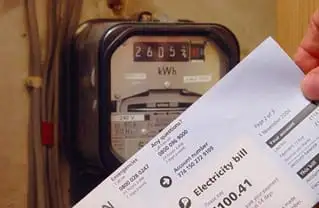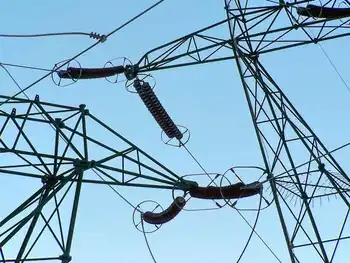Oregon creates hot jobs in green energy
By The Oregonian
NFPA 70e Training
Our customized live online or in‑person group training can be delivered to your staff at your location.

- Live Online
- 6 hours Instructor-led
- Group Training Available
"There have to be jobs tied to these," Wolff thought.
With that much machinery moving down the highway, and that much installation and building going on, she smelled an opportunity. And as chief academic officer for Columbia Gorge Community College, Wolff was in a position to pursue the notion.
Two years later, the college is churning out technicians for the booming wind farms of the mid-Columbia. Having developed a curriculum that fits the wind power companies' needs, the college has placed 50 to 55 graduates who maintain the electronic and mechanical systems of the 400-foot-tall wind turbines that have sprouted in the rolling hills of north-central Oregon and across the river in Washington.
The money is good — Wolff estimates graduates earn $18 to $24 an hour — and demand is hot. An initial assessment indicated the wind power companies within a 50-mile radius of The Dalles would need 360 technicians by 2011. The projected need has since jumped to 500 to 600 technicians.
It's an economic and environmental success story in an area hard pressed for family wage jobs, an example of "green collar" employment blossoming in reaction to high energy costs and concerns about global warming. And advocates say it shows sustainable technologies don't have to mean cutting back, but can mean growth instead.
In this case, easing our dependence on traditional electrical power sources such as hydro and coal can generate household income.
Oregon Gov. Ted Kulongoski is a believer. He calls jobs in the solar, wind and biofuels fields the "entrance of a new economy."
Oregon's community colleges, and at least one trade union, are gearing up for the change. Columbia Gorge Community College, which will admit 36 more students this fall and now offers one-year certificates and two-year degrees in its Renewable Energy Technology program, is deepening its partnership with wind farm companies.
Portland Community College teamed up with SolarWorld to train workers for the company's new solar panel manufacturing plant in Hillsboro. The college offers an associate degree in solar voltaic manufacturing technology and a shorter certificate program in solar technology. Of 20 students enrolled recently in a basic electronics class, 18 were scheduled for interviews with SolarWorld.
Lane Community College in Eugene, meanwhile, offers an energy management program, and other colleges are developing similar courses.
The International Brotherhood of Electrical Workers has seen the lighting on the wall as well. The union operates training centers in Portland and Tangent at which journeymen and apprentice electricians learn to place, wire, install and maintain solar panels. The panels, often mounted on rooftops, generate direct-current electricity that is converted to alternating current for home or office use or for distribution to the electrical grid.
Learning to install the panels is a skill electricians increasingly need to have, said Greg Creal, the instructor in Tangent, near Albany. More than 400 students have taken the two-day, 16-hour course in the past three years.
"We start with how sunlight is turned into electricity at the molecular level, and we finish up by doing a mock installation on the side of our building," Creal said. "The class is generally full; we have to turn people away."
Hughes Electrical Contractor of Portland recently sent an eight-member crew through training. The training could give the company an edge when it bids on construction jobs, superintendent Jeff Stanton said.
"It's kind of crucial for us to do that, because the market's changing so fast," he said.
Those changes are producing nationwide ripples. In a June 2008 report titled "Job Opportunities for the Green Economy," researchers with the University of Massachusetts said fighting global warming and transforming the U.S. to a green economy is "a massive and defining challenge for our time."
The reports predicts millions of jobs for electricians, engineers, welders and other technicians as the country retrofits buildings, builds mass transit systems, produces energy-efficient cars and develops alternative energy sources.
Oregon is ahead of most states in recognizing the employment opportunities riding shotgun with climate change problems, says a North Carolina educator who has emerged as national expert on the topic.
"This is the next industrial revolution; it's that big and it's already started," says Rusty Stephens, president of Wilson Community College east of Raleigh.
Developing, producing, installing and maintaining new energy-related technology — and the massive job of retrofitting existing buildings and systems — could revamp the American economy, Stephens believes.
"It's going to affect every plant, every house, every home, every office," he says. "Every door, every window, every light switch will have to be looked at and upgraded.
"I believe, if we get some leadership, that we will create more jobs in America in the next 10 years than in the last 30," Stephens says. "As people migrate out of the old economy, they're going to need some help. That brings education — and the community colleges, in my opinion — into the center of what we're talking about."
Stephens said the opportunities associated with sustainability make him optimistic.
"I'm a very hopeful person," he said. "I'm very much in the camp of: 'We can do this. This is America.'"
Wolff, with Columbia Gorge Community College, said the jobs gained through the wind turbine program have helped The Dalles.
"It's such a nice gift to our region and our taxpayers," she said. "When you see your aluminum smelters close and you see wheat prices fall, it brings that sense of hope."











